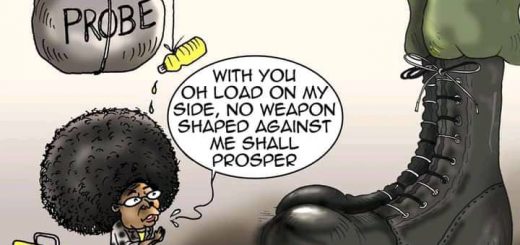Can the state lawfully tag every vehicle in Uganda to prevent armed killings

The government of Uganda has failed to stop the murder of high ranking Public officers by armed men. The last murder to rock the nation is the attempted murder of General Katumba Wamala in June 2021. The murders by armed men using motorcycles and vehicles have continued though the state has firm control of the possession of fire arms in Uganda. No one knows what the motives of these killings are and who carrying them out. The state in spite of having a massive surveillance apparatus and a huge defense budget has failed to track and arrest the murderers and their bosseses. Some members of the Public speculate that it is people within the regime fighting amongst themselves and that it is the reason why the state has not made progress in capturing them.
The government has proposed that because the killers use vehicles and motorcycles, vehicles and motorcycle should have a digital tag to show where the vehicle has been. Actually most modern vehicles have GPS tracking in built that can show where the vehicle has been. It is not clear whether the state seeks a system where it can centrally track the physical position of every vehicle and motorcycle in Uganda every minute of every day or it seeks to mandate that every vehicle must have hardware that makes it possible to determine where the vehicle has been by forensic examination. The former is an over board and onerous requirement that the state might neither have the technical expertise to accomplish nor the Constitutional powers to implement but the latter might be within the legal powers of the state and cheap to implement.
Tracking every vehicle and motorcycle in Uganda requires infrastructure in form of hardware, satellite or Internet connection and storage. I am not sure that the state has this infrastructure in place to effectively monitor every car in Uganda. A tracking device capable of doing what the state wants must either rely on internet connectivity or a satellite. Internet connectivity in rural areas of Uganda is very unreliable and in any case, the state must either rely on the internet of the car owner or provide its own internet to the tracking device. However, incompetent Ugandan courts might be, there is already precedent that the government can not take personal property without compensation. I doubt the state can use the car owner’s internet without compensating the car owner. This can be a costly endeavor because the government will have to buy data for every car owner year in year out to ensure that the tracking device continuously connects with the state servers. The other option is to use a satellite tracking device which does not rely on internet connectivity. This might not be as expensive as buying internet data bundles for every car owner but it requires the government making continuously payments to the satellite company to provide tracking services. Over time the payments to the satellite company will also add up and become substantial expenditure given that most satellite companies charge per vehicle.
The state interest in preventing crime is argueably strong enough to allow it to mandate that every vehicle should have hardware that allows an investigator to establish where it has travelled. This requirement is likely Constitutional as long as such a mandate doesn’t unduly burden the right to privacy because it is theoretically possible to include safe guards that allow the government to access the location data only by court warrant. This requirement is a kin to the state imposing licensing requirements and other limits on personal property such as a requirement for a building permit.
On the other hand, a requirement to constantly track the whereabouts of every vehicle without a warrant is an facially unconstitutional and an extraordinary exercise of surveillance powers. There are many objects and articles that are owned by individuals that are capable of being used to commit criminal offense. Even human body parts are often used to commit criminal offenses. Just because it makes it easy for the police to find criminals if they could track the tools used, it doesn’t mean that the state is at liberty to plant a tracking device on the tool and continuously track its location and that of the user. For example even ones hands and mouth and penis are routinely used to commit criminal offenses. It would serve the Public interest in detecting and investigating crime if the state could continuously track the whereabouts of those body parts but no one can argue that the state should strap a tracking device on them.
Though individual rights are not absolute and can be limited in public interest, the limitation must be reasonable, serve a legitimate Public interest, not unduly burden the right being limited and must be the least effective means of achieving the state interest. Obviously tagging the vehicle of every law abiding citizen not suspected of committing a crime is overboard and an undue burden on the right to privacy. There are multitudes of ways of achieving the state interest without tagging the vehicle of every law abiding citizen. By tagging the vehicle of every citizen, the state is able to know the location of every citizen and every where they go.
The question in the circumstances is whether the state interest in detecting and investigating criminal offenses is superior to the public interest in privacy. The tracking device can easily be defeated by not using vehicles or motorcycles. For example the criminals could use bicycles or move on foot or simply use stolen vehicles or block the satellite connection by covering the tracking device in lead. The damage to the individual liberties however is grave and extremely serious.The information can be used against political opponents, the location data can be sold by criminal elements in the government to criminals instead to be used for tracking citizens for assassination purposes and it would limit the ability of law abiding citizens in engaging in lawful but shameful activities for fear of their enemies tracking them through the tracking device.
The state interest can be achieved by installing surveillance cameras, which the state already did. It can also be achieved by the registration of all guns. All these are less restrictive means of detecting and investigating criminal offenses that can serve the same purpose as the tracking devices. As explained vearlier, the tracking device eliminates the privacy of law abiding citizens. Motor vehicles are used for travel to and from friends, leisure activities and other places that citizens choose to travel to. The state interest in detecting and investigating a few bad seeds who misuse motor vehicles is not stronger than the Public interest in privacy and preventing arbitrary state intrusions into private matters of law abiding citizens. If I want to spend my days and nights in a shrine somewhere in nakasongola I should not have to worry about the state tracking my movements and possibly leaking or selling my tracking information to criminals or my enemies.
Read More
- Ideal Amendments that should be included in the Magistrates Courts Amendment Bill 2026 of Uganda
- President Yoweri Kaguta Tibihaburwa Museveni is a minority President voted by only 7,946,772 (36.7%) out of 21,649,608 eligible Ugandan voters in the 2026 Presidential Elections
- Four years of IGG Beti Kamya drowned the Inspectorate of Government (IG) deeper into oblivion and irrelevancy but it Can be redeemed
- The Proposal to Make Magistrates Grade Ones Chief Magistrates is an efficient use of resources that will improve service delivery in Uganda
- If Magistrates Courts in Uganda are less competent and more prone to corruption does it mean that the poor deserve inferior justice to the rich.


